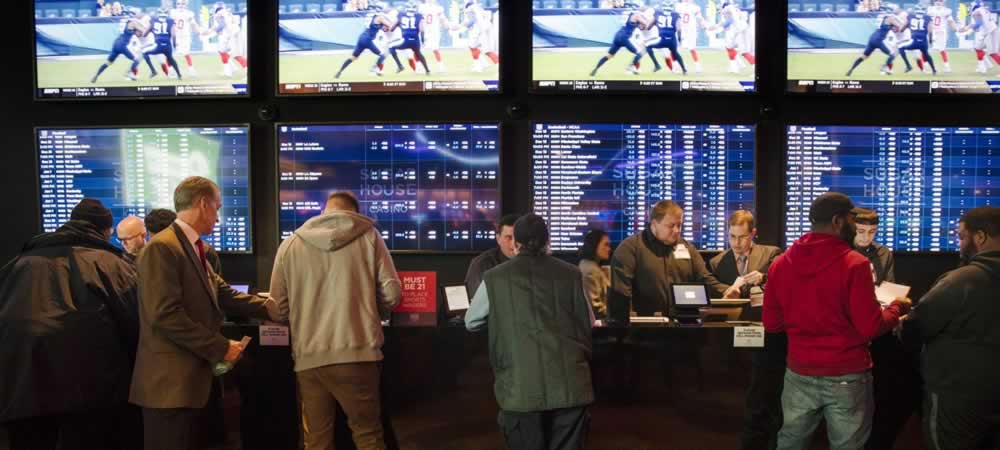- Lawmakers are working out the details for ME LD 553.
- Lawmakers have not worked out the tax rate for sports betting.
- Bettors in Maine cannot wager on Maine-based college games.
AUGUSTA, Maine – Lawmakers met on Monday to work out the details for sports betting.
Lawmakers are working on ME LD 553 to create a comprehensive sports betting bill. In early May, lawmakers dropped all sports betting bills except for one.
No Agreement On Tax Rate
Tax rates for sports betting were in the discussions on Monday. There were several proposals put forward on what the tax rate should look like. Several states with sports betting legalized have different tax rates. This made it more difficult for lawmakers in Maine to come to an agreement.
State Senator Louis Luchini said that there should be a different tax rate for retail and online sportsbooks. The retail sportsbooks would have a 10 percent tax rate and online would have 18 percent rate. Others have proposed other numbers for the possible two-tier tax rate, such as 8 and 10 or 10 and 15.
Lawmakers do agree that a lower tax rate would be beneficial for Maine. They also realize that they need to keep their expectations low. This is due to the fact that Rhode Island revenue projections were off the mark. Maine sports betting revenue will go towards problem gambling assistance.
Other Issues That Need Work
Lawmakers are still discussing the legal gambling age. Although most lawmakers are saying 21 would be best, others are making arguments for 18.
“I just feel when you are 18-years-old, you are considered an adult and you should have all of the rights that go with that. Including the ability to participate in this, if you’d like to,” said State Representative John Andrews.
Where bettors can go to find a sportsbook is not final either. Right now, the draft proposal will allow for 11 different locations to open a sportsbook. On top of that, lawmakers are considering what they should do with online and mobile wagering.
Lawmakers are considering if they should tie mobile wagering to brick-and-motor sportsbooks. Don Barberino, who owns Waterville and Sanford facilities, made several arguments about this issue.
The main point of his argument is that if online platforms are not tied to retail sportsbooks, they would lose revenue. Mobile wagering makes up about 80% of the sports betting market in other states like New Jersey. Lobbyists from DraftKings did not like that argument. Luchini proposed mobile only sites would fix the issue. In the end, Maine lawmakers still need to work out mobile wagering.
Something that the lawmakers agreed upon is what leagues bettors can wager on. They all agree that professional, amateur, and some college games can be bet on. There is also a rule about not allowing for bets on high school games. There will also be no bets made on Maine-based college games. This is a trend in the New England area.
Although there are several details missing, Maine sports betting is starting to take shape. Lawmakers are coming into agreement on several issues and are working out what they do not agree on. Lawmakers have scheduled further discussions for ME LD 553 for Friday to work out the finer details. Then the bill will then go to the House and Senate for their general votes.
Advertising Disclosure
In order to provide you with the best independent sports betting news and content LegalSportsBetting.com may receive a commission from partners when you make a purchase through a link on our site.
News tags: Maine | ME LD 553 | sports betting

Daniel is a writer that enjoys writing to inform readers. When Daniel was writing for The Borgen Project, he liked informing the world about victories in global poverty issues. Daniel is also an avid horse racing fan who has been going to the track with his father for over a decade betting the ponies. When he is not writing about sports betting or at the track, Daniel loves playing video games and watching sports in his spare time.


 College Football Betting
College Football Betting Best Online Sports Betting
Best Online Sports Betting Best Legal NFL Betting
Best Legal NFL Betting States With Legal Sports Betting
States With Legal Sports Betting Sports Betting Events
Sports Betting Events




